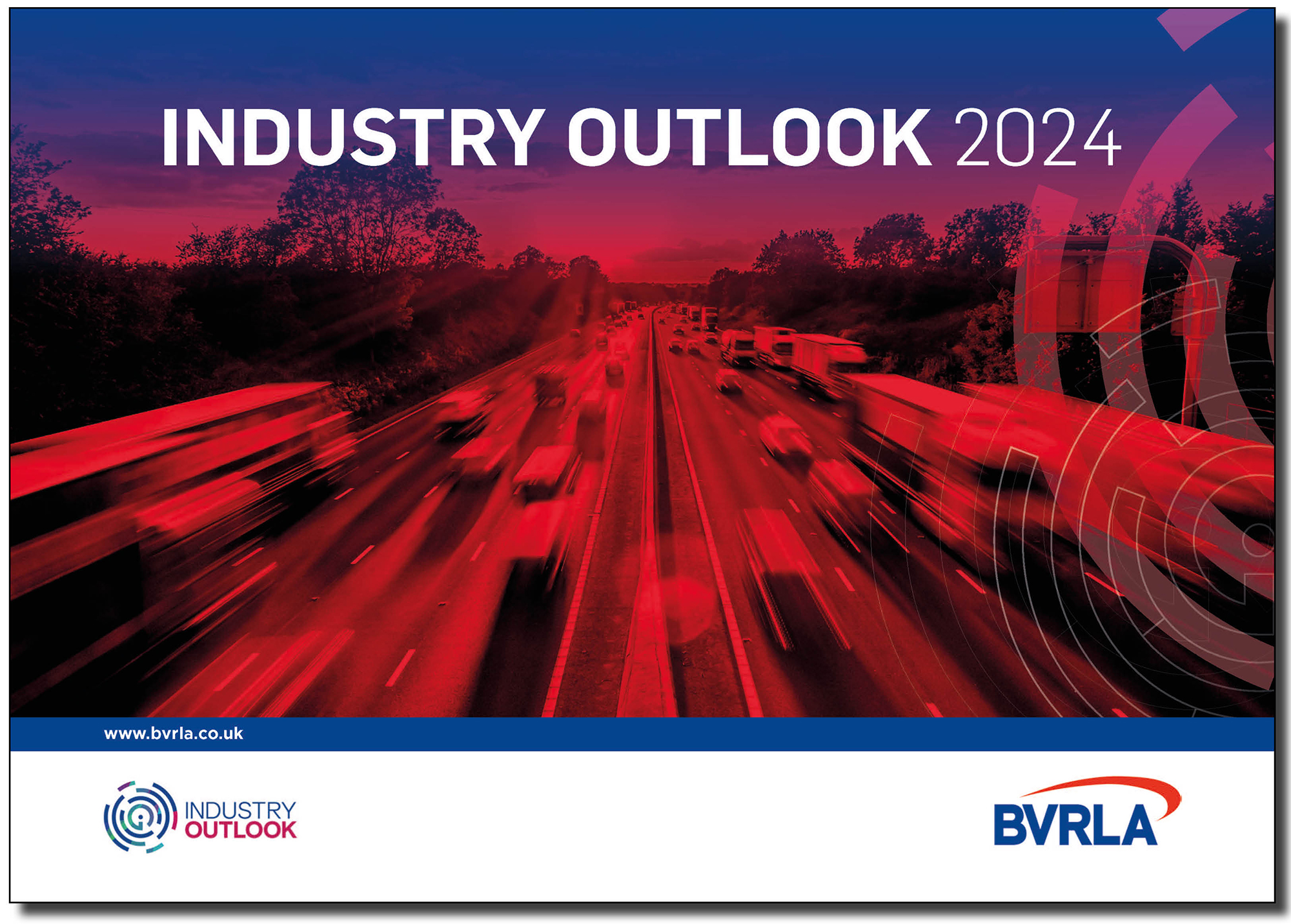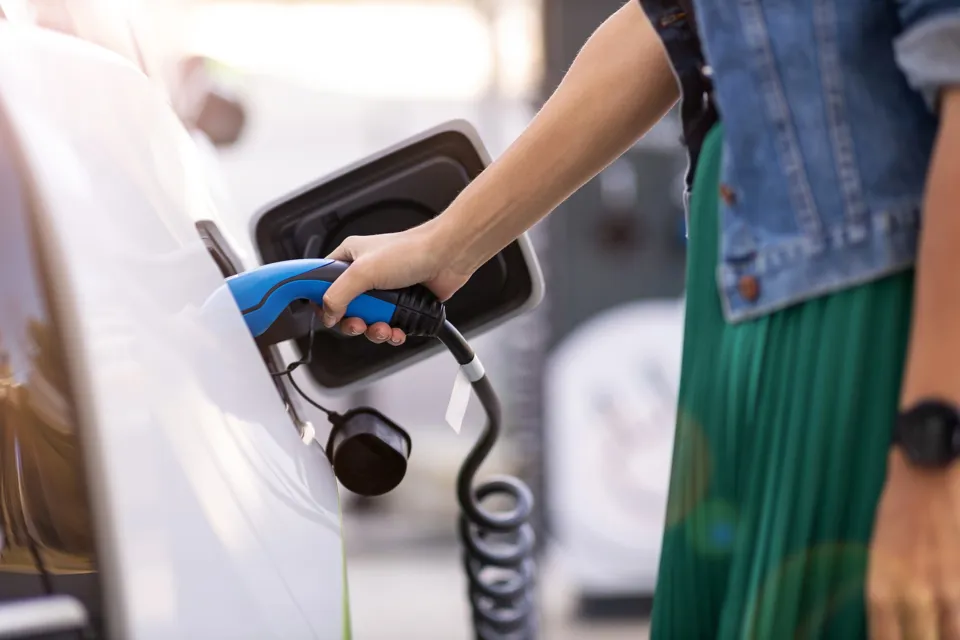The leasing industry is warning of a potential hike in lease rentals for electric vehicles (EVs) if residual values (RVs) continue their downward decline.
Prices of used battery electric vehicles (BEVs) have been in freefall for a year, tumbling by more than 30%, and there are growing fears that the fleet and retail markets are following very different trajectories in their adoption of zero emission vehicles.
This has led to mounting calls among industry players for Government intervention to stimulate demand for new and used BEVs among private motorists to avoid a glut of unwanted plug-in vehicles developing.
In its latest Industry Outlook report, the British Vehicle Rental and Leasing Association (BVRLA) says that the Government’s recent decision to extend the deadline for the sale of petrol and diesel models until 2035 has diluted any sense of urgency about the transition to zero emission vehicles.
“Consumers are being confused by mixed messages on BEVs, and the delay on banning the sales of new petrol and diesel cars may result in consumers delaying their transition decisions,” said Lee Hamlett, commercial director at Kinto.
Current data indicates that only when used BEV prices fall to the same level as used internal combustion engine (ICE) equivalents do they find buyers.
If this trend continues, the BVRLA says that lease rentals of BEVs will rise sharply to cover higher depreciation costs, given their higher acquisition prices.
The situation in the electric van market is even more acute, it says, with neither leasing nor rental customers showing much desire for battery-powered light commercial vehicles (LCVs), and even less appetite apparent among used van buyers.
Used car and van prices

Despite the softening of the used market in the second half of 2023, second-hand vehicle prices are still well ahead of pre-Covid levels, says the BVRLA.
Furthermore, about 2.5 million new car sales were ‘lost’ during the pandemic and its aftermath, which should support vendors over the next couple of years in the delicate supply-demand balance that dictates used car values.
However, it says that with interest rates high and used car buyers caught in a cost-of-living crisis, it is creating affordability issues for used car prices.
Moreover, there is a widening chasm between strong fleet appetite for new electric cars and reticent retail demand.
Fewer than 25% of new EVs are bought by private buyers, according to the latest sales data from the Society of Motor manufacturers and Traders (SMMT).
The leasing industry is clear that the negative narrative surrounding EVs needs to change, ideally backed by financial support from the Government in the form, perhaps, of interest free loans, VAT exemption for used EVs or a scrappage scheme.
Otherwise, it says that used EV values will remain at the same level as used petrol and diesel car prices, spelling much greater depreciation for battery powered models, and therefore higher lease rates.
Leasing companies are also exploring opportunities for second-life leases, in salary sacrifice, personal leasing and SME markets.
Ageing van fleets, meanwhile, have left 40% of leasing companies feeling pessimistic about the residual values they will achieve when their commercial vehicles are finally remarketed.
The combination of a shortage of supply and eye-watering increases in new LCV prices has seen business customers extend their van contracts at least once and, in some instances, twice, rather than confront the much higher rental costs of a new vehicle.
However, the rising maintenance costs and increased downtime of older vehicles is forcing a renewal programme and leaving the industry with older vehicles in poorer condition to sell.
This, says the BVRLA, manifests itself in the survey data, with leasing companies twice as likely as rental firms to forecast a deterioration in LCV values over the next 12 months.
However, it’s worth noting Cox Automotive’s analysis that LCV prices have established a ‘new normal’, 10.8% lower than the peaks of 2021, but still 42% ahead of the pre-Covid average.
Further positive news is that the steady introduction of clean air and ultra-low emission zones is pushing drivers of second-hand vans to upgrade at least to Euro 6 models, although leasing companies report extremely limited demand for used electric LCVs, prompting innovation to create second-life e-LCV leasing products.
Positive about leasing outlook

Despite the concern around used car and van EV prices, the vehicle rental and leasing sector is feeling positive about 2024.
The BVRLA’s latest Industry Outlook report shows members are predicting growth across virtually all market segments and feeling more confident about business conditions.
Gerry Keaney, BVRLA chief executive, said: “Having endured decade-high interest rates, turbulence in the used car markets, and a stagnating national economy, we have every reason to believe that 2024 will bring more positive results.
“In testing times, the sector has again come out on top. All indications are that our members enter next year stronger and optimistic about the growth opportunities that will emerge.
“External factors that dictate market activity are all expected to improve. Vehicles are being delivered with greater frequency and the cost of finance is much more favourable that it was. Growth is back on the agenda.”
The BVRLA’s Industry Outlook Report 2024 was launched as part of the Industry Outlook Conference, held on Wednesday, December 6.
The report analyses data from across the BVRLA’s membership of over 1,000 companies working in vehicle rental and leasing, encompassing quantitative data and interviews with senior executives.
It suggests that supply of new cars and vans are both expected to increase next year, with 43% of respondents expecting car supply to be back to pre-Covid levels by the end of 2024.
BVRLA members also anticipate better demand in the new year, across consumer and business sectors.
Personal Contract Hire (PCH), and Business Contract Hire (BCH) – for cars and vans – are both expected to be stronger in 2024 than they were in 2023. Confidence is shown across all markets, with rental, subscriptions, salary sacrifice, and car clubs expected to have a better year too.





















Login to comment
Comments
No comments have been made yet.